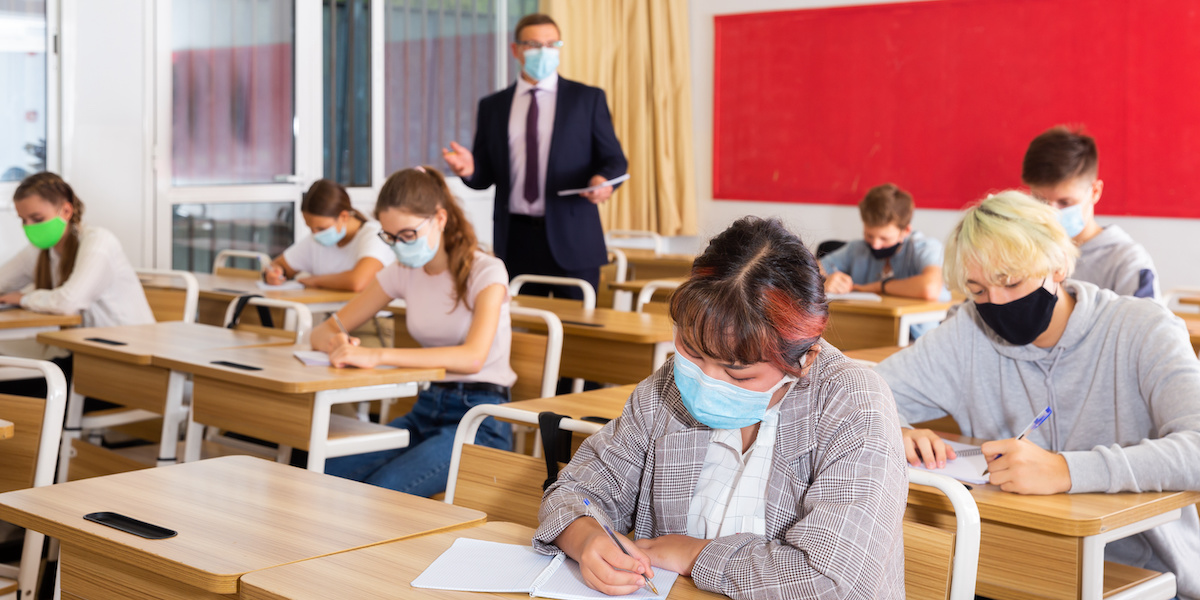
The following is excerpted from an online article posted by MedicalXpress.
The COVID-19 pandemic changed the social and school world for teens as virtual learning or hybrid learning became the norm in 2020-21. The unprecedented shutdown of classroom learning caused undue stress, low levels of social inclusion, and low satisfaction with school for many—and mental health issues for some, according to a new study led by researchers at the University of California, Davis.
“It is clear from this study that certain individuals ended the 2020-21 school year facing more adversity than others,” said Drew Cingel, lead author and associate professor of communication at UC Davis. The study was published last month in the journal PLOS ONE.
The study found that teens who were able to attend school in-person reported more sense of inclusion in their social group than those learning online. And despite the traditionally high use in this age group, social media failed to compensate for real, in-person social connections derived from school, researchers suggest.
Youth participating in virtual learning reported feeling less social connection and higher rates of mental health problems, in comparison to their peers who could attend school in-person or in a hybrid model.
Data was collected from 1,256 United States adolescents, ages 14 to 16, to examine how their school context related to feelings of school satisfaction and success, social connection, mental health and media use. The findings suggest that current school interventions may be necessary to help teens recover from the disparities experienced during this unique time, researchers said.
And while the use of social media by teens was reported as more pronounced than before the pandemic, the increased socialization online was perceived both positively and as problematic at the same time.
“Importantly, while adolescent youth are adept and frequent media users, and report using media for social purposes, in this instance in which so much of their in-person social connection was lost, social media and gaming do not appear able to provide a protective mechanism enough to compensate for that loss,” researchers said in the study.
Source: MedicalXpress
https://medicalxpress.com/news/2022-11-online-covid-detrimental-teen-mental.html

 Youth Gun Homicides Doubled During Second Half of Pandemic
Youth Gun Homicides Doubled During Second Half of Pandemic  Early Puberty Surged During The Pandemic, And This Could Be Why
Early Puberty Surged During The Pandemic, And This Could Be Why  Study Shows How Pandemic Affected Teen Boys and Girls Differently
Study Shows How Pandemic Affected Teen Boys and Girls Differently